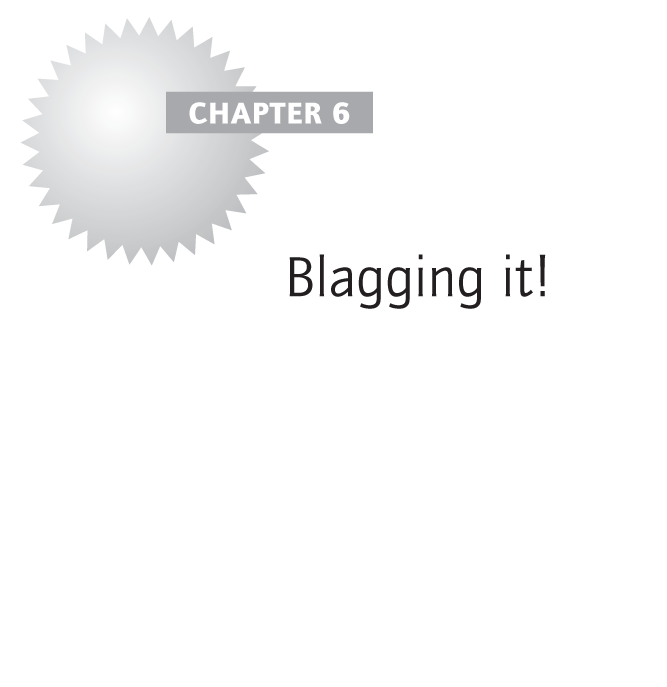The very nature of turning up for a meeting without being properly prepared seems to be at odds with the positive actions and preparation required for a ‘Brilliant Meeting’, that we are resolutely advocating throughout this book.
Whilst the ideal is for every meeting to be fully organised and thoroughly prepared for, operational circumstances and sheer pressure of work sometimes render this impossible. Faced with being unprepared for the meeting, you have a limited number of realistic choices:
- Cancel your attendance at the meeting.
- Blag it!
In some cases it may be unavoidable for you to attend a meeting that you have not prepared for adequately, due to time pressures, short notice, illness, holidays, etc., and so you will have to blag it. It is worth remembering at this point that amongst all the participants you are probably not alone in this situation. After all, if everyone prepared fully for every meeting they attended, there would be little time for anything else!
We have already covered the importance of meeting preparation in Chapter 3, Before the meeting, however, should you find yourself in a meeting where you need to blag it, perhaps a few of these strategies may help you.

B l a g g i n g i t!
Bring a notebook.
Let me take the notes.
Act confidently.
Gain more thinking time by asking questions.
Gather a list of general meeting discussion topics.
Inform of your mistake.
Network during breaks.
Greatly embellish.
Is it the best option?
Take yourself out (only for the truly desperate).
Let us take a look at each of these tips in turn.
Bring a notebook with you
In this way you will always look ready to participate in a meeting, by listening actively and taking personal meeting notes and actions.
Let me take the notes
Unless they are concerned with governance, meetings today rarely have a dedicated note taker. At the start offer to take the notes, this will keep you fully occupied and deflect the need for you to provide unprepared contributions.
If your input is requested, first smile then give yourself thinking time with a well-practised phrase or, even better, direct a question back to the facilitator. Ask for clarification on the feedback requested, for example:
‘Just to ensure that I understand what you require from me at this point, are you suggesting that . . .’
Gain more thinking time by asking questions
Make sure the questions you pose are open questions (see Chapter 5), to draw out more detailed and lengthy answers. People inherently love to talk, so whilst they are imparting their wisdom, you do not have to – this shifts the emphasis away from you. For those of you with children, you will recognise this well-used distraction technique!
Gather a list of general meeting discussion topics
This should be a printed list that ‘gives the impression’ to others that you have invested some time in preparing for the meeting. Here are some suggestions of bullet points that could appear on your list:
- Expand on ideas from the last meeting.
- Confirm related actions have been completed and review outcomes.
- Discuss timescales involved.
- Reaffirm project structure and group objectives.
- Book dates for future meetings.
- Ask for feedback from others on specific agenda items, before giving your own conclusions.
- What additional resources (external or internal) should be considered at this time?
- Do we need to involve anyone else in these meetings?
Inform of your mistake
‘Sorry guys, I would rather be honest than ruin/spoil the whole meeting.’
‘For some reason, the meeting was not listed in my ‘Outlook’ so it’s a good job I ran into Dave this morning.’
Network during breaks
Use all the meeting breaks and breakout sessions to gain as much knowledge from your colleagues as possible.
Greatly embellish
Why use 10 words if you can get away with 10,000 and include some great anecdotes, trying to keep them as relevant as possible.
Is it the best option?
It is as important to know when not to ‘blag it’, as it is to know when to ‘blag it’. If a direct question has been posed in your direction, and no amount of thinking time will give you the answer – then the best advice is to be honest. Repeat the question (to confirm you have understood it correctly) then propose that you take this away as an action, adding that you will collate all the relevant information to present at a later date, or the next meeting.
Take yourself out (only for the truly desperate)
Organise for a colleague to interrupt the meeting that you are attending, with an urgent phone call/task that will take you out of the meeting and away from your ‘unprepared’ situation.
Conclusion
Being unprepared is not a comfortable position to find yourself in. However, as a consequence of today’s increasingly busy and long working days, it is somewhat inevitable that you will, at some point, be less prepared than you would like, as you enter a meeting environment. We hope that these ideas will allow you to make the best of every meeting that you actively participate in.

